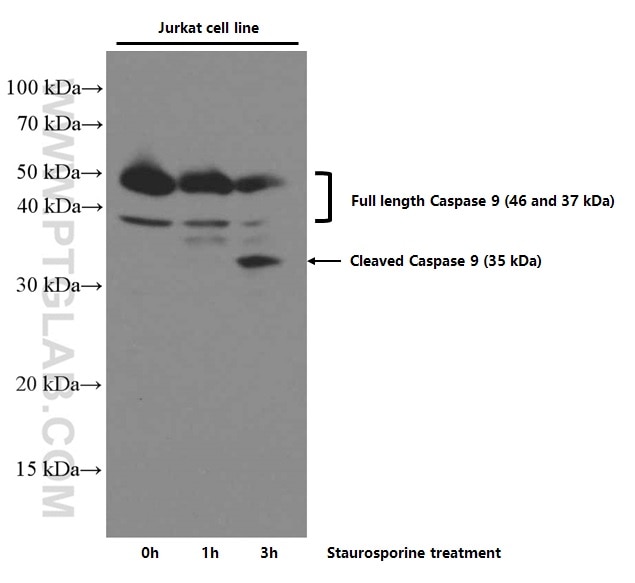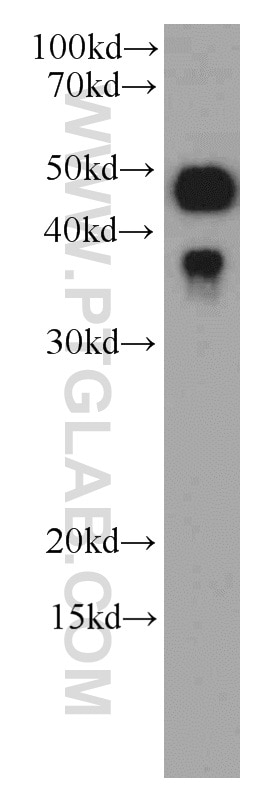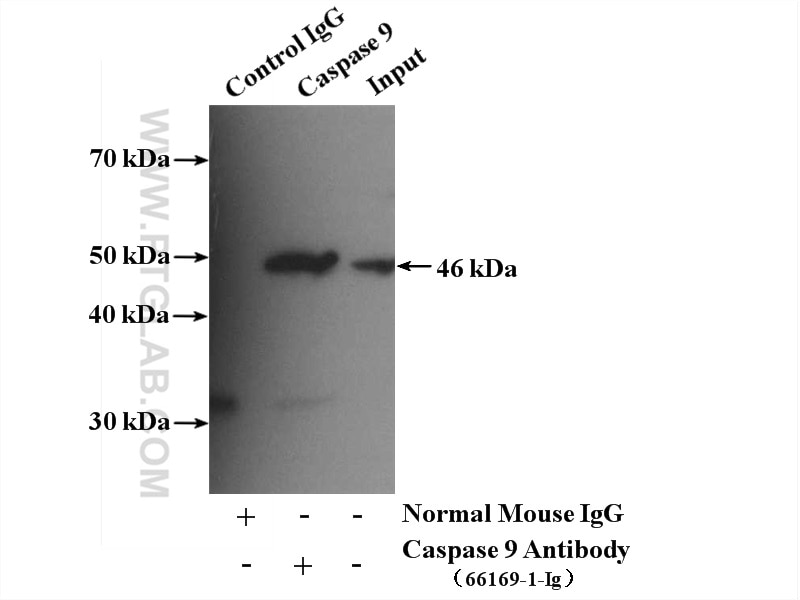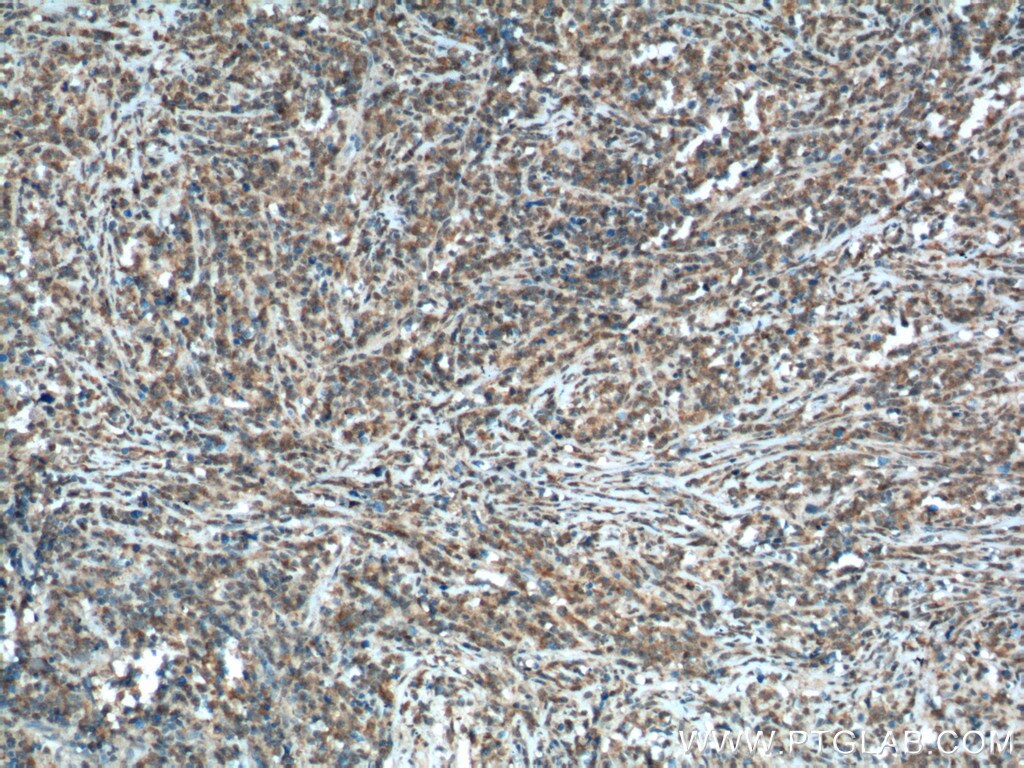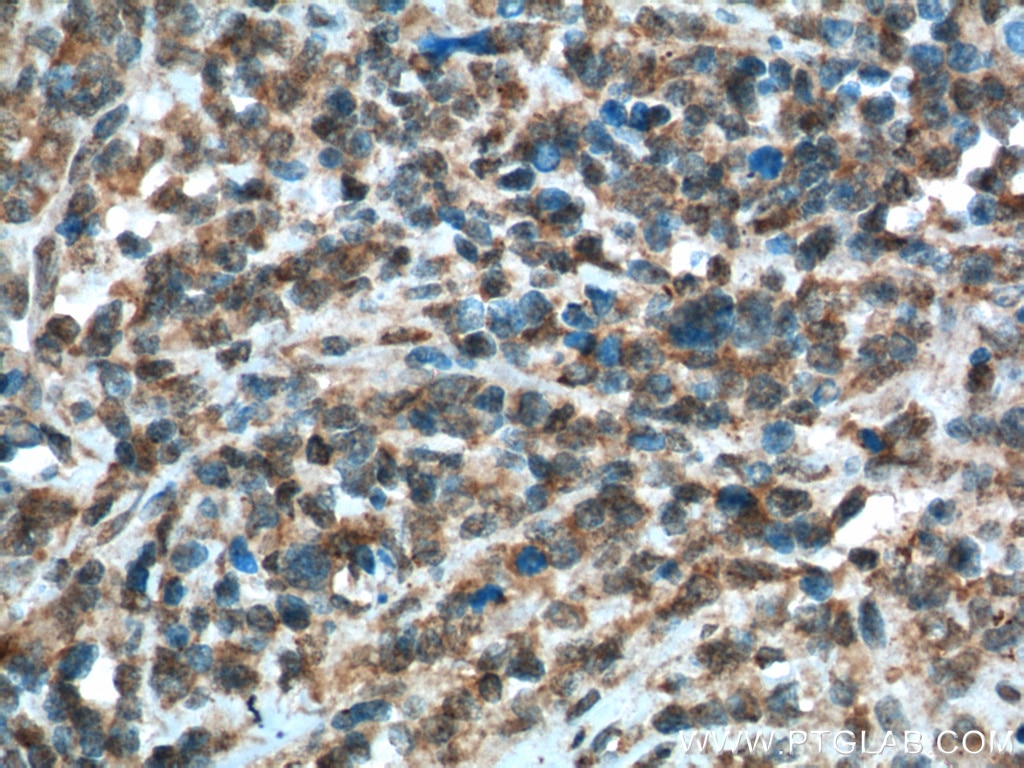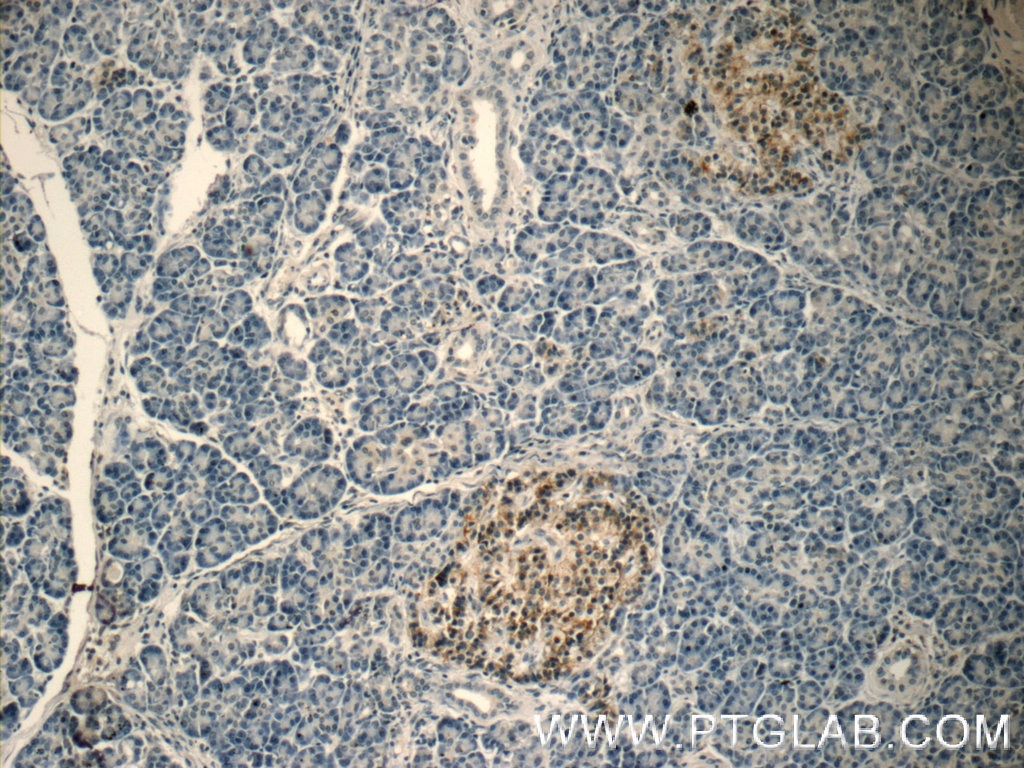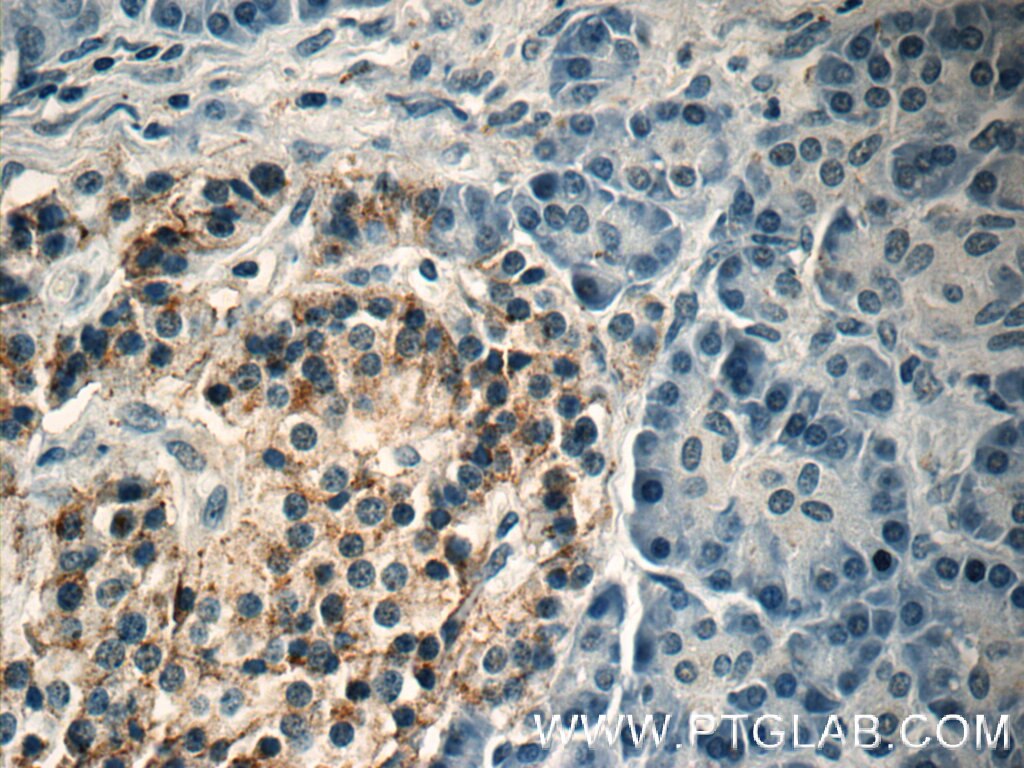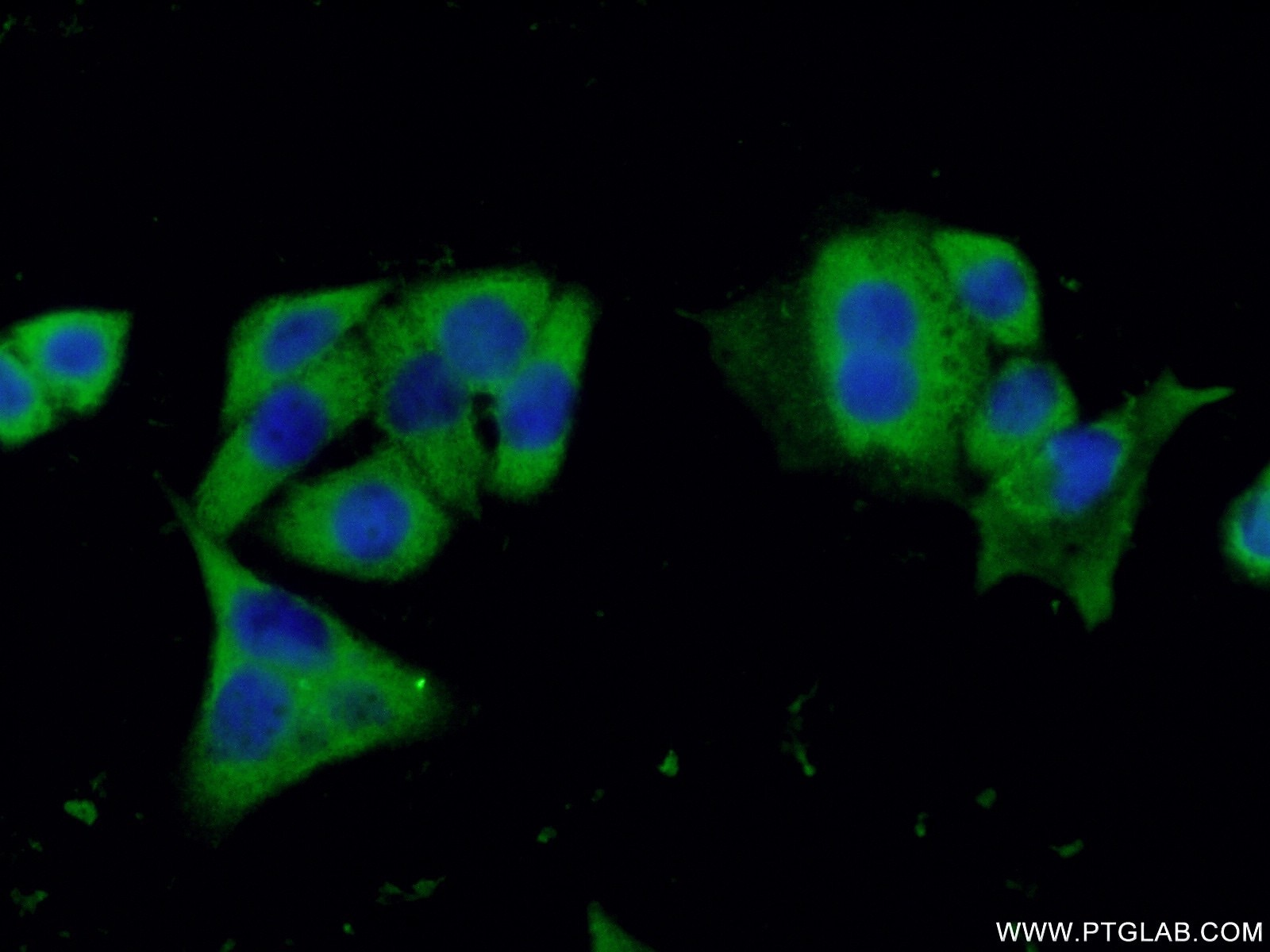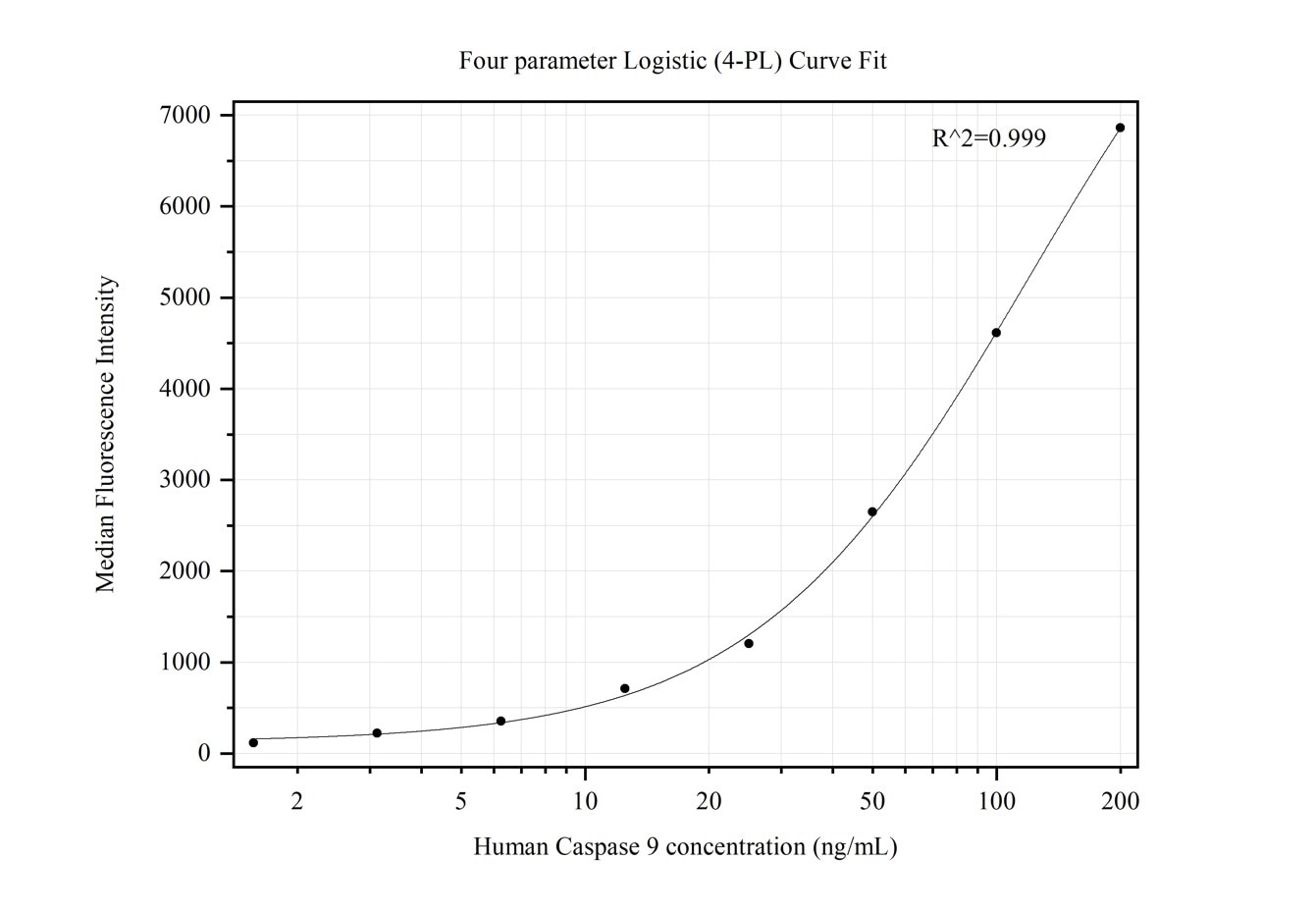Anticorps Monoclonal anti-Caspase 9/P35
Caspase 9/P35 Monoclonal Antibody for WB, IHC, IF/ICC, IP, Cytometric bead array, Indirect ELISA
Hôte / Isotype
Mouse / IgG2b
Réactivité testée
Humain, souris
Applications
WB, IHC, IF/ICC, IP, Cytometric bead array, Indirect ELISA
Conjugaison
Non conjugué
CloneNo.
1B7G2
N° de cat : 66169-1-PBS
Synonymes
Galerie de données de validation
Informations sur le produit
66169-1-PBS cible Caspase 9/P35 dans les applications de WB, IHC, IF/ICC, IP, Cytometric bead array, Indirect ELISA et montre une réactivité avec des échantillons Humain, souris
| Réactivité | Humain, souris |
| Hôte / Isotype | Mouse / IgG2b |
| Clonalité | Monoclonal |
| Type | Anticorps |
| Immunogène | Caspase 9/P35 Protéine recombinante Ag20813 |
| Nom complet | caspase 9, apoptosis-related cysteine peptidase |
| Masse moléculaire calculée | 46 kDa |
| Poids moléculaire observé | 46 kDa, 35 kDa |
| Numéro d’acquisition GenBank | BC002452 |
| Symbole du gène | Caspase 9 |
| Identification du gène (NCBI) | 842 |
| Conjugaison | Non conjugué |
| Forme | Liquide |
| Méthode de purification | Purification par protéine A |
| Tampon de stockage | PBS only |
| Conditions de stockage | Store at -80°C. 20ul contiennent 0,1% de BSA. |
Informations générales
Caspase 9, apoptosis-related cysteine protease (CASP9,synonyms: MCH6, APAF3, APAF-3, ICE-LAP6, CASPASE-9c)is a member of the cysteine-aspartic acid protease (caspase) family. Sequential activation of caspases plays a central role in the execution-phase of cell apoptosis. Caspases exist as inactive proenzymes which undergo proteolytic processing at conserved aspartic residues to produce 2 subunits, large and small, that dimerize to form the active enzyme. Capase 9 is processed by caspase APAF1; this step is thought to be one of the earliest in the caspase activation cascade. In recent years, the localization of caspase9 was a focus of interest. Beside its cytoplasmic distribution, a very extensive localization study was done on rat brain tissue, where caspase9 was found located predominantly in the nucleus and to a lesser extend in the cytoplasm [PMID: 15541731].
